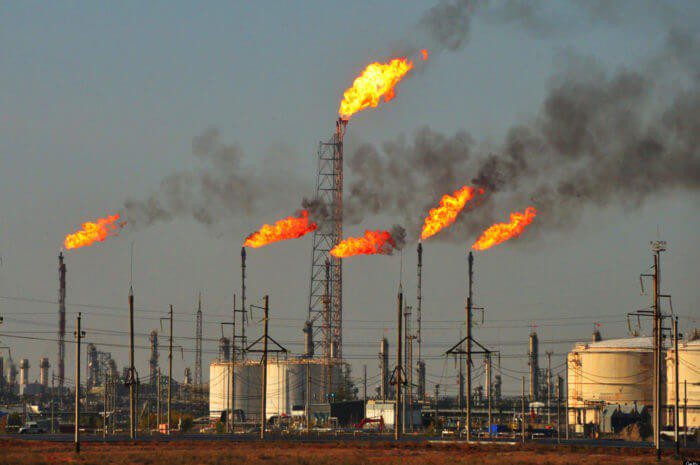Breaking News
Nigeria lost 9,900 Gigawatts in Q1’2025
Reducing methane emissions, especially in the oil and gas sector, according to experts will strengthen climate action and unlock benefits for public health, food security, and economic development.

Despite Federal Government’s (FG) efforts, Nigeria lost 9,900 Gigawatts, GWh per hour of power generation potential in the first quarter of 2025, Q1’25.
This represents a 16 percent increase, Quarter on Quarter, QoQ, when compared to 8,300 GWh, generation losses suffered in the corresponding period of 2024.
Data obtained from the latest report of the National Oil Spill Detection and Response Agency, NOSDRA, put the monetary value of the 98.8 million mscf flared gas during the period at $345.9 million.
According to NOSDRA, the defaulting companies, including the International Oil Companies, IOCs, were liable to fines amounting to $197.7 million (about N318.3 billion).
Providing a further breakdown of the volume of gas flared across oilfields, NOSDRA disclosed that flaring by companies operating onshore rose by 10 percent to 67.1 mscf, against 31 mscf flared by companies operating offshore.
According to NOSDRA, the volume of gas flared during the period under review was equivalent to a carbon dioxide emission of 1.6 million tonnes.
NOSDRA lamented that despite efforts to reduce gas flaring, it has continued in Nigeria since the 1950s, releasing carbon dioxide and other gaseous substances into the atmosphere.
FG has projected an end to gas flaring in the country by 2030.
The Minister of State for Environment, Dr. Iziaq Salako, said NOSDRA plans to ensure alignment with this aspiration as it begins stakeholders’ engagement on methane mitigation and reduction in Nigeria’s oil and gas sector.
Methane, a potent greenhouse gas with significant warning potential compared to carbon dioxide, poses a major threat to the health and well-being of current and future generations and climate protection goals.
Reducing methane emissions, especially in the oil and gas sector, according to experts will strengthen climate action and unlock benefits for public health, food security, and economic development.
Meanwhile, Gbenga Komolafe, Chief Executive Officer (CEO) of the Nigerian Upstream Petroleum Regulatory Commission (NUPRC), said the country’s gas flare commercialisation programme (NGFCP) has the potential to unlock $2.5 billion investment in the oil and gas sector.
Komolafe said in addition to huge revenue generation, the NGFCP would create a significant amount of jobs.
He stated further: “As the global focus shifts toward a low- carbon future, NUPRC is embedding sustainability into seven upstream operations, mitigating environmental risks and protecting communities.
“Key actions include: managing methane and GHG emissions; fostering energy efficiency and carbon credits, promoting investments in Carbon Capture Utilisation and Storage (CCUS) and enforcing Environmental Social and Governance (ESG) goals.
“Through the Nigeria Gas Flare Commercialisation Programme (NGFCP), approximately $2.5 billion in investment will potentially be unlocked, generating huge revenue, and creating a significant number of jobs. “We have been deliberate in efforts at social inclusiveness for enhancing host community development.”










